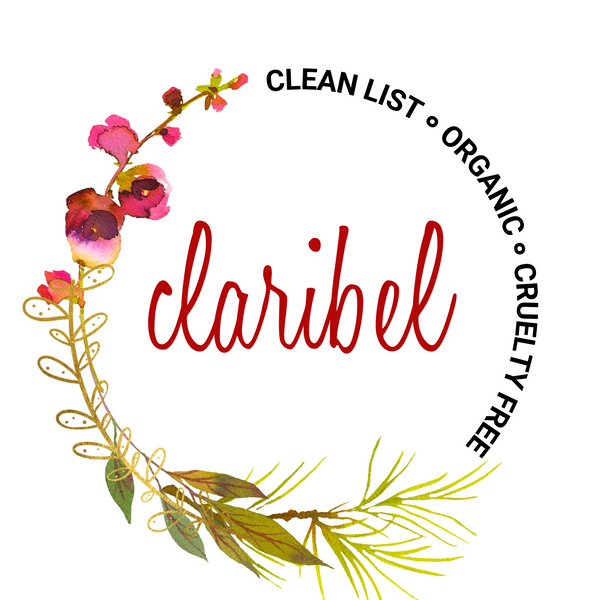
Natural Skin Care Routine for Acne
Acne can be a difficult and trying time period for anyone, and if you're someone who has battled acne most of your life, this blog post will offer some important and helpful information. Thankfully there some key things you can do to help minimize acne breakouts and reduce the inflammation that is often associated with acne.
Let’s move on to answering some pertinent questions about acne, like “What is the best natural skin care routine for acne?”, “Why are some people prone to acne?”, “What are some key ingredients for acneic skin?”
Our Customizable Cleansing Bar is a great way to include those much needed ingredients in a clean list cleanser to benefit your skin.
What Exactly is Acne?
Acne is a common skin condition that happens when hair follicles within the skin become clogged. Oil and dead skin cells plug the pores, and outbreaks of lesions (often called pimples or zits) can happen. Most often, the outbreaks occur on the face but can also appear on the back, chest, and shoulders.
Why are Some People Prone to Acne?
There are a few reasons why someone might be prone to acne outbreaks. Each of these things can directly influence the functionality of our skin, how to responds, and how our hormones react and function.
Stress. Stress can sometimes cause acne, and stress almost always makes existing acne worse. When we sleep less and/or worry more, we can exacerbate breakouts. Lack of sleep and worry can cause cortisol and other hormones in our body to work in overtime, which can then lead to breakouts.
Food. Dairy and high glycemic foods can cause acne. Traditionally, acne prone individuals have always been warned to avoid things like pizza and French fries, and these greasy choices can make existing acne harder to get rid of, the main culprits to steer clear of are dairy products and high glycemic choices. Some high glycemic foods to avoid: white bread, white rice, cake, soda, all sugary candy, and cookies.
Nicotine. One study found that smoking may play a role for some women with acne. In this study, the women had noticeable whiteheads and blackheads that often covered a large area of their face. Some also had a few pimples. The researchers found that many of the women in this study smoked cigarettes. They also found that the more cigarettes a woman smoked, the more severe her acne. Some of these women developed icepick-type acne scars when the acne cleared.
Germs. Touching our faces and using cosmetic brushes and cleaning tools can lead to outbreaks. Even with the best intentions and wanting to look our best by apply cosmetics and cleansing our faces, we can cause acne without realizing. Germs and bacteria can harbor in a facial cleansing pad, wash cloth, or our brushes and applicators. The best rule of thumb is to thoroughly clean these items at least once a week. Another way germs can cause acne, is after sweating or a workout. Sweat in itself does not cause acne, but dirt, debris, and bacteria can accumulate and stick to sweaty skin, creating situation where breakouts can thrive. It’s always a great idea to take a quick shower or wash up after a workout or sweating. At the very least, try several splashes of warm water on your skin and towel off to help rinse away the sweat and bacteria.
What is the Best Natural Skin Care Routine for Acne?
It’s optimal to break down the best skin care routine for acne into two parts: Morning routine and evening routine.
Our Customizable Cleansing Bar is a great way to include those much needed ingredients in a clean list cleanser to benefit your skin.
Morning Skin Care Routine for Acne:
Cleanse. Using a cleanser that is generally oil free (other than perhaps some acne clearing essential oils) will help get your day kick started in the right direction. Try to choose something on the gentle side to avoid redness and inflammation. It’s best to save your slightly heavier hitting cleansers for nighttime, if you have one you prefer, just to keep things calm and moving in the right direction.
Tone and/or Treat. Toning and mist treatments are a great way to help keep your skin in it's best condition with an added layer of nutrients and active ingredients. Acne suffers can often also deal with things like scarring and discoloration. A quality toner or mist treatment can help correct those issues that can be the result of breakouts.
Hydrate. Not only do people with acne need hydration, good quality hydration can also help prevent acne. When your skin is dry, when you skin any kind of hydration, you leave your skin open to the accumulation of a dry top layer made of up dead skin cells that can clog pores. Following all of these steps will help keep dead skin cells away and hydration will keep skin from drying out and causing more issues.
Zinc. We’re getting specific here. Instead of suggesting sunscreen, we highly recommend finding a product that contains zinc as your sun protection. Zinc can help heal acne, as opposed to some other sunscreen ingredients, which can irritate acne prone skin. So not only does zinc protect your skin from the sun by creating an actual barrier or shield, but it can help correct breakouts (see below in our recommended ingredients for acne).
Evening Skin Care Routine for Acne:
Cleanse. Cleansing in the evening is essential if your combating breakouts. This could be your window of opportunity to use something just slightly stronger than in the daytime, if you’d like to. It’s not necessary. The entire point of cleansing for acne is to clear skin of debris, dirt, and bacteria, and cleansing will do that efficiently. If you want to bring in some gentle glycolic acids or other ingredients, feel free to do so in the evening.
Tone / Treat. Toning and treating skin with acne products in the evening is an opportunity to continue your efforts to kill acne bacteria and remove dead skin cells that can clog pores. Part of that treatment might be a gentle scrub once or twice a week. If this is something you’d like to try, go in gently and calmly. The right scrub strategy can help clear skin and create that healthy glow.
Hydrate. Evening hydration is essential. You’ll be spending many hours with dry skin before morning, if you don’t consider one. Choose one that you think is going to give your skin the boost it needs. Your choices for the evening are a wide range, so chose one your know your skin will react to well.
What are Some Key Ingredients for Acne?
Bearberry. Offers a variety of medicinal benefits but is mainly known for it’s anti inflammatory, antibacterial and antioxidant qualities. It’s wonderful for acne care, as it has astringent and disinfectant qualities, and kills the bacteria that causes acne. It contains a few sought after ingredients Allantoin (wound healing), Arbutin (natural lightening), Betulinic Acid (improves elasticity and cancer preventative), Ellagic Acid (natural lightening and antioxidant).
Cinnamon. Is a very effective, antiviral, antioxidant, antiseptic and anti-fungal. Cinnamon is able to kill acne causing bacteria, improves blood and oxygen circulation, therefore helping by unclogging and opening pores.
Salicylic acid. Salicylic acid is a naturally occurring compound, which can be isolated from the bark of the willow tree. Salicylic acid penetrates into your skin and works to dissolve the dead skin cells clogging your pores.
Sandalwood. Helps soothe and relieve irritated skin that may be itchy, inflamed, dehydrated, and for suffers of eczema, psoriasis, and acne. The scent promotes relaxation from stress or anxiety.
Sulfur. Elemental sulfur can be found near hot springs and volcanic regions in many parts of the world, especially along the Pacific Ring of Fire; such volcanic deposits are currently mined in Indonesia, Chile, and Japan. Sulfur helps dry out the surface of your skin to help absorb excess oil (sebum) that may contribute to acne breakouts. It also dries out dead skin cells to help unclog your pores.
Tea Tree. Has the strong ability to kill the bacteria that causes acne. It is an anti-fungal, anti-bacterial and anti-viral.
Willow Bark. Naturally derived and contains the natural version of salicylic acid. Promotes cell turnover, exfoliation, acne prevention, and the reduction of wrinkles.
Zinc. Zinc is a mineral that can also help with acne. You can take it as an oral supplement or as a topical treatment. A recent review of the past studies on the topic found that zinc can decrease oil production in the skin, and can protect against bacterial infection and inflammation. Zinc also provides UV protection, a key ingredient in many sunscreens on the market.
Our Customizable Cleansing Bar is a great way to include those much needed ingredients in a clean list cleanser to benefit your skin:
Conclusion
The right skin care routine for acne can bring the desired changes you're desperate for, and we help make it easier for you with our all natural clean list products with the right ingredients to combat breakouts. Our Customizable Cleansing Bar is a great way to include those much needed ingredients in a clean list cleanser to benefit your skin.

